I had written on the Hide-and-Seek game within the Train Graveyard scene where Tifa and Aerith are characterized as good friends. I was not part of the original FFVII fandom so it surprised me that most North American audiences considered Tifa and Aerith as rivals. Much of the recent “proof” of the love rivalry in Final Fantasy 7 Remake lay in this specific exchange in the same Train Graveyard section. Yet when comparing the Japanese and English versions, that “rivalry” does not quite hold out.
I’m going to compare each line of the conversation separately. The first line is the Japanese script. The second line is the official English script. The third line is my translation of the Japanese.
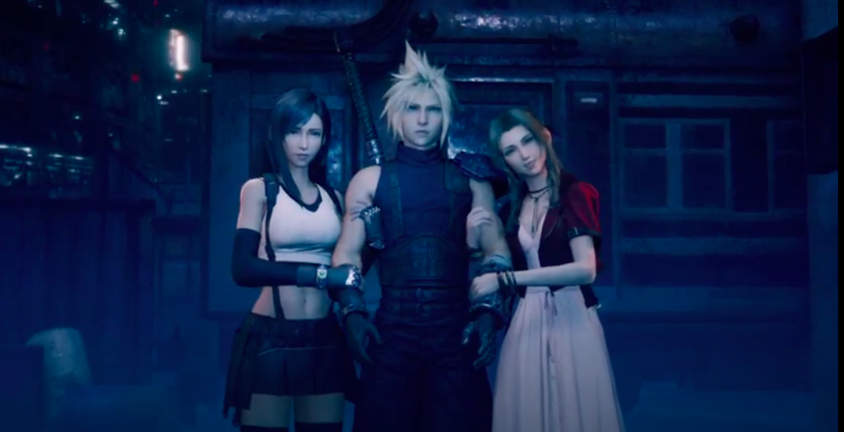
1. The “rivalry” compared
Before they enter the area, it is clear that Tifa is scared and unsure if she should enter. She asks Cloud and Aerith
Japanese: これって
English: Well, whaddya think…?
My translation: So is this…
Aerith looks at Cloud and says confidently,
Japanese: 行ってみよ?
English: I’m game!
My translation: Let’s check it out, yeah?
Tifa hedges so Aerith says
Japanese: 大丈夫!
(Holds Cloud’s arm) 凄腕のボディーガード…
(Leans in to look at Tifa more closely) いるから。
(Turns back to Cloud) ねっ
English: Don’t worry!
(Holds Cloud’s arm) We’ve got a bodyguard, don’t forget.
(Leans in to look at Tifa more closely) Mine!
(Turns back to Cloud) Right?
My translation: Don’t worry!
(Holds Cloud’s arm) As for a skilled bodyguard…
(Leans in to look at Tifa more closely) there’s one right here.
(Turns back to Cloud) Right?
Cloud mumbles that ghosts aren’t his thing. Tifa then grabs Cloud’s other arm and says
Japanese: そんなこと言わないで。なんとかして。
English: You’re just being modest! After you!
My translation: Don’t say stuff like that. Figure something out okay?
Uncomfortable, socially awkward Cloud says,
Japanese: わかったから離れてくれ。
English: Mind letting me go, then?
My translation Alright but give me some space.

2. Meaning comes from context: words, tone, body language
The meaning of this short scene comes from the full context of the scene. Dialogue, how voice actors emphasize certain words, and body language combine to make significant differences in how a scene is read.
For example, Aerith leans in closer to Tifa to emphasize something. Yet across the two languages, Aerith is emphasizing two completely different things. In Japanese, she is saying “Tifa, hey we’ve got one!” but in English, she is getting really close just to say “MINE.” In the same way, her final “right?” confirms two totally different things with Cloud. In Japanese, she is saying “Right, Cloud? You’re the bodyguard, right?” In English, she is saying “you’re MY bodyguard! Right, Cloud?”
Aerith’s dialogue also impacts how players might interpret Tifa’s next move: grabbing Cloud’s other arm. If she was just reassured by her new BFF Aerith that yes, Cloud will be their bodyguard, she may grab his arm because she can rely on him for protection. Tifa is definitely frightened in the scene. But if she was just put in her place by claim-staking Aerith, you might see the arm grab as a competitive, possessive move. Like “You say he is yours? Well, I’m going to grab his arm too then.”
3. Which language is “right”?
Most would identify the Japanese script to be the “right” one. After all, it is the original script from Japanese writers and game designers. Arguably, the Japanese script is more consistent with the narrative flow. Immediately before this scene, Tifa and Aerith paired up to fight the gangsters in Don Corneo’s together. They had run off through the sewers and made plans to go shopping together. Cloud was just their “Pack Chocobo” (荷物持ち). As I had written before, the Hide-and-Seek segment of the game similarly emphasizes their friendship as deeply affirming and beyond Cloud’s presence.
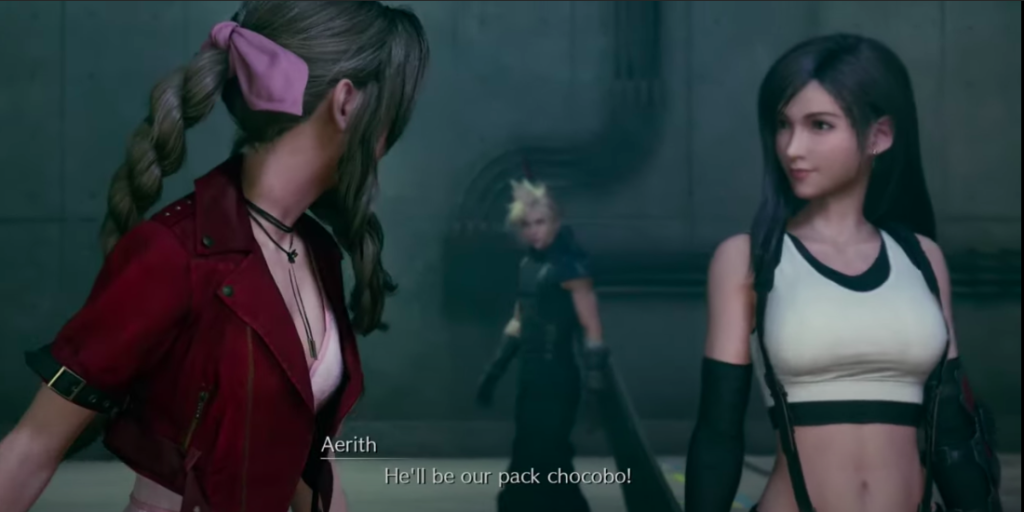
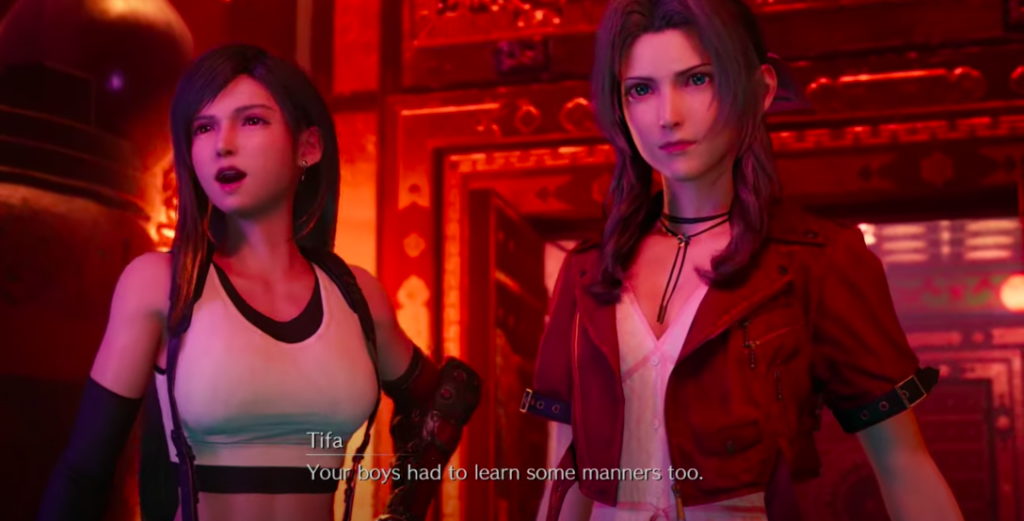
However, both languages are “right.” There is a love triangle in the game – but it is depicted differently in each context. [SPOILERS] In the original game, a deeply traumatized Cloud has adopted the identity of Aerith’s love Zack. This Cloud-Zack persona carries the “real” Cloud through the game until he begins to remember his true past. Cloud’s possible romantic attachment to Aerith is part of the narrative tension about his real identity. [/SPOILERS]
In Japanese, the love triangle is more implicit. Aerith’s arrival triggers Tifa’s insecurities and makes her question her feelings about Cloud. However, Tifa’s confusion remains internal. While she might feel sad in some scenes if Cloud seems to prefer Aerith, she does not respond by actively “fighting” to win him. Players discern the emotional conflict by watching the characters’ hesitation and paying attention to all of the things left unsaid.
In English, the love triangle is simply more explicit and externalized. Instead of Tifa internally debating with herself, her feelings are brought out more obviously through Aerith’s teasing language. Arguably, American storytelling about romantic conflict tends to focus on action – what IS said or what feelings are shown through action? Perhaps localization differences can be tied to cultural differences in how emotions are shown? After all, Tifa’s personality is slightly different when comparing the two language settings.
My other conclusion is that localizers were keen to play up the love triangle, precisely because of fan reactions over the last twenty years.
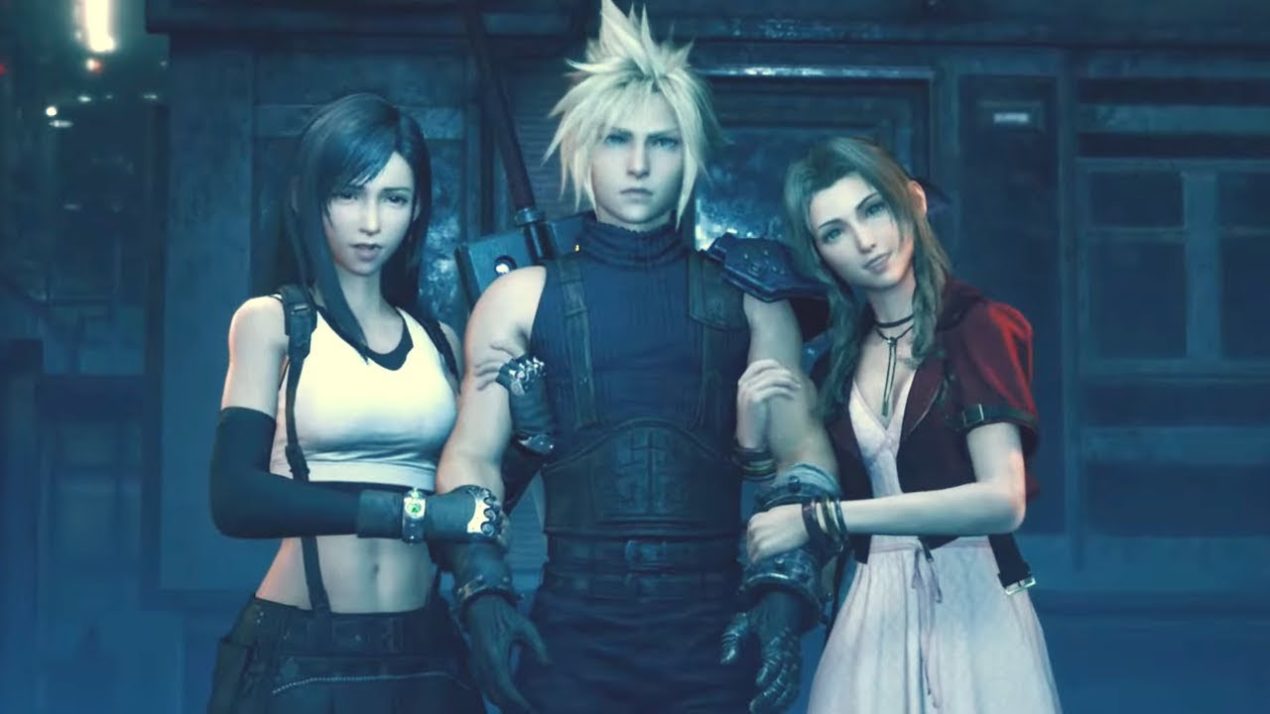

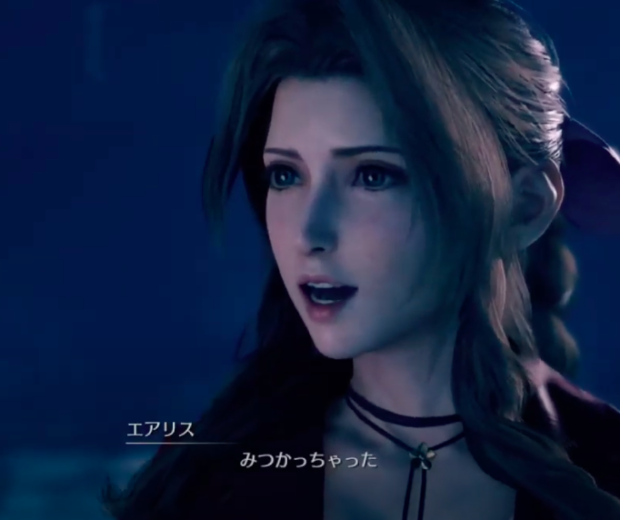
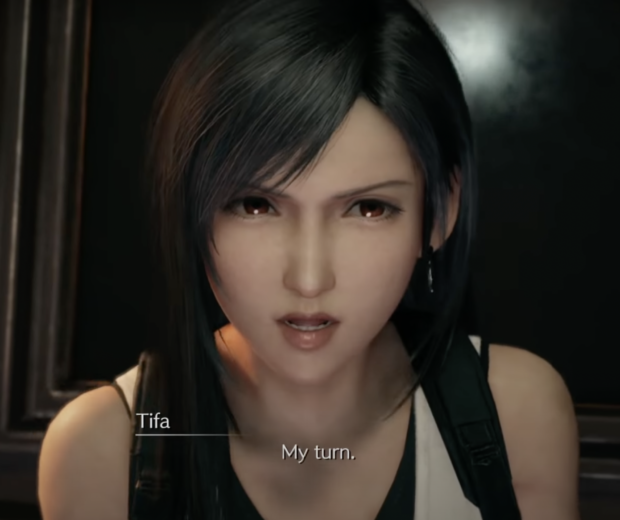
Leave a Reply